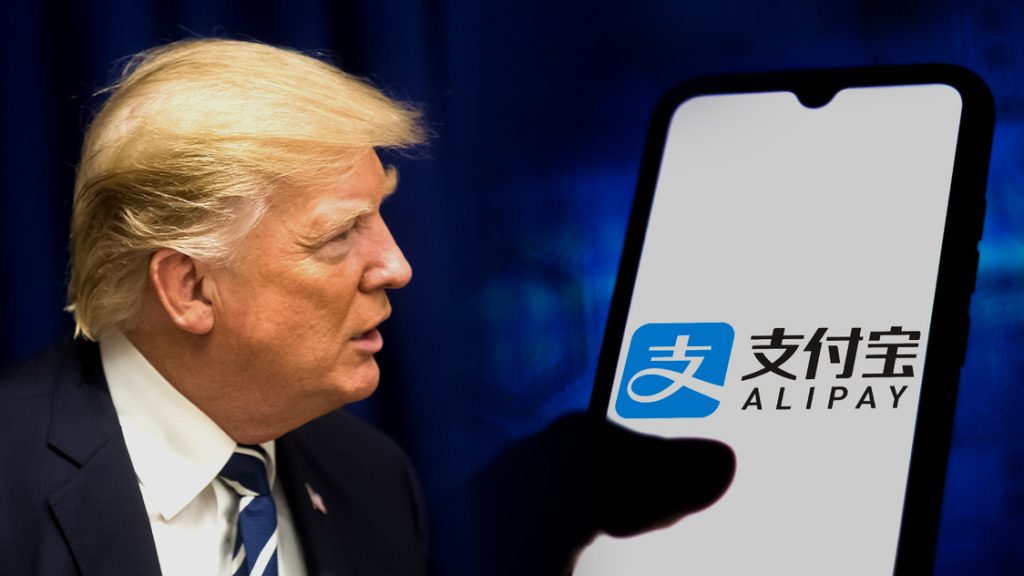US to Ban Chinese Software in Autonomous Cars: Reuters Report

I am a law graduate from NLU Lucknow. I have a flair for creative writing and hence in my free time work as a freelance content writer.

I am a law graduate from NLU Lucknow. I have a flair for creative writing and hence in my free time work as a freelance content writer.
Tension escalates between the White House and Beijing as the former hits China by banning U.S. transactions with eight Chinese apps. Yesterday, former U.S. President Donald Trump signed an executive order that bars any citizens of the U.S. from carrying out transactions with eight Chinese software applications. One of this Chinese software is Ant Group’s Alipay which is one of the broadly used payment services in China. The news is first reported by Reuters.
One of the senior administration officials has reported to Reuters that the executive order has been signed to protect the U.S. citizens. The U.S. government officials believe that the sensitive data of American citizens are at risk of getting exposed to this Chinese software. Due to their large user bases, it is easier for the Chinese applications to gather crucial data of the Americans.
According to the order signed by Trump, it suggests the United States take “aggressive actions” against these Chinese software applications. The steps will be taken for the sake of national security. The Commerce Department is responsible for deciding which transactions will be barred under this directive within 45 days from now. The U.S. is targeting Tencent Holdings Ltd’s QQ Wallet and WeChat Pay apart from Alipay. Some of the other names mentioned in the order are CamScanner, SHAREit, and VMate. The sudden ban on transactions between these apps and America will have a huge impact on the economic stature of China.
In response to this order, Kingsoft Corporation, a Chinese software company said that it did not expect to have a huge impact on its business in such a short term due to Trump’s executive order. No other company made any comment related to this statement. Apart from this listed Chinese software, the Chinese Embassy also didn’t comment after a response was requested.
Any kind of software used for payment purposes is linked to our bank accounts. Moreover, we are connecting these software applications from my electronic devices thus giving the Chinese software access to our personal information. The order says that this Chinese software can capture our sensitive personally identifiable information and private information. Having such a broad swath of data would allow China to locate the federal employees and contractors and build dossiers of personal information.

The relationship between China and the U.S. is going through turmoil for quite some time. In August, Trump ordered a ban on Chinese apps like TikTok and WeChat and gave the same reason that the government is concerned about data theft. But, amidst this bitter-growing relationship, the newly elected U.S. president, Joe Biden made very few comments. He didn’t clearly specify yet how he plans to address the cyber or tech threats from China.
Though Trump has signed this order, Biden can revoke it while he begins officially as the president of the U.S. But, Biden’s transition team has declined to comment on this matter. This order might bring out casualties on both sides even before the dispute regarding the origin of COVID-19 is settled. It seems like Trump is ready for a big battle with China striking time and again at the same wound.
If Trump’s order passed in August had gone into effect, the Chinese apps would have already been banned from the U.S. It couldn’t have been possible due to the court restrictions mainly on the ground of freedom of speech. One of the senior administration officials said that the White House is confident about the order this time. The new rules and restrictions of this order cannot stand against judicial scrutiny as software like Alipay will struggle to bring a First Amendment case.
In November 2020, Reuters reported that the U.S. The State Department submitted a proposal to add Ant Group to a trade blacklist. This would prevent U.S. investors from taking part in the world’s potential biggest IPO. But, for some reason, the Chinese government made Ant Group pull off the IPO resulting in a huge loss for both the company and the investors. Currently, Ant Group is suffering from the judgments of both America and China itself. Recently, China ordered an anti-monopoly investigation on Alipay which is owned by the Ant Group. It is difficult for a company to operate is in the crosshairs of both its home country and another powerful nation.

Annasha Dey is an NIT student, who apart from studying engineering is also a content writer. She has a great interest in photography, writing, reading novels, and travelling as well. She is a foodie who loves socializing and hanging out with her friends. She is also a trained Kathak dancer and a big fashion enthusiast. Dey also loves watching TV series, which includes F.R.I.E.N.D.S. and Big Bang Theory. To be a better writer she prefers to read more